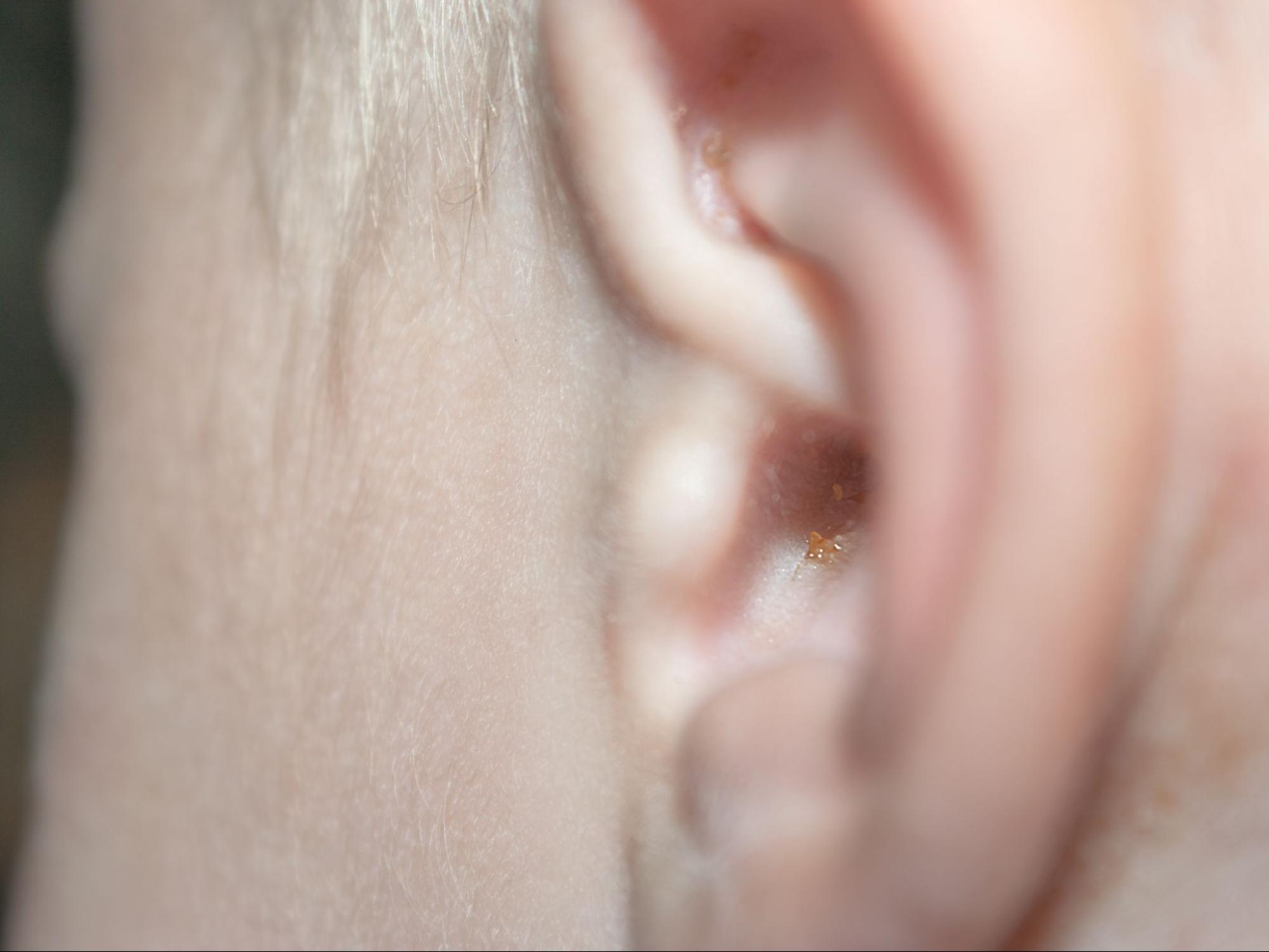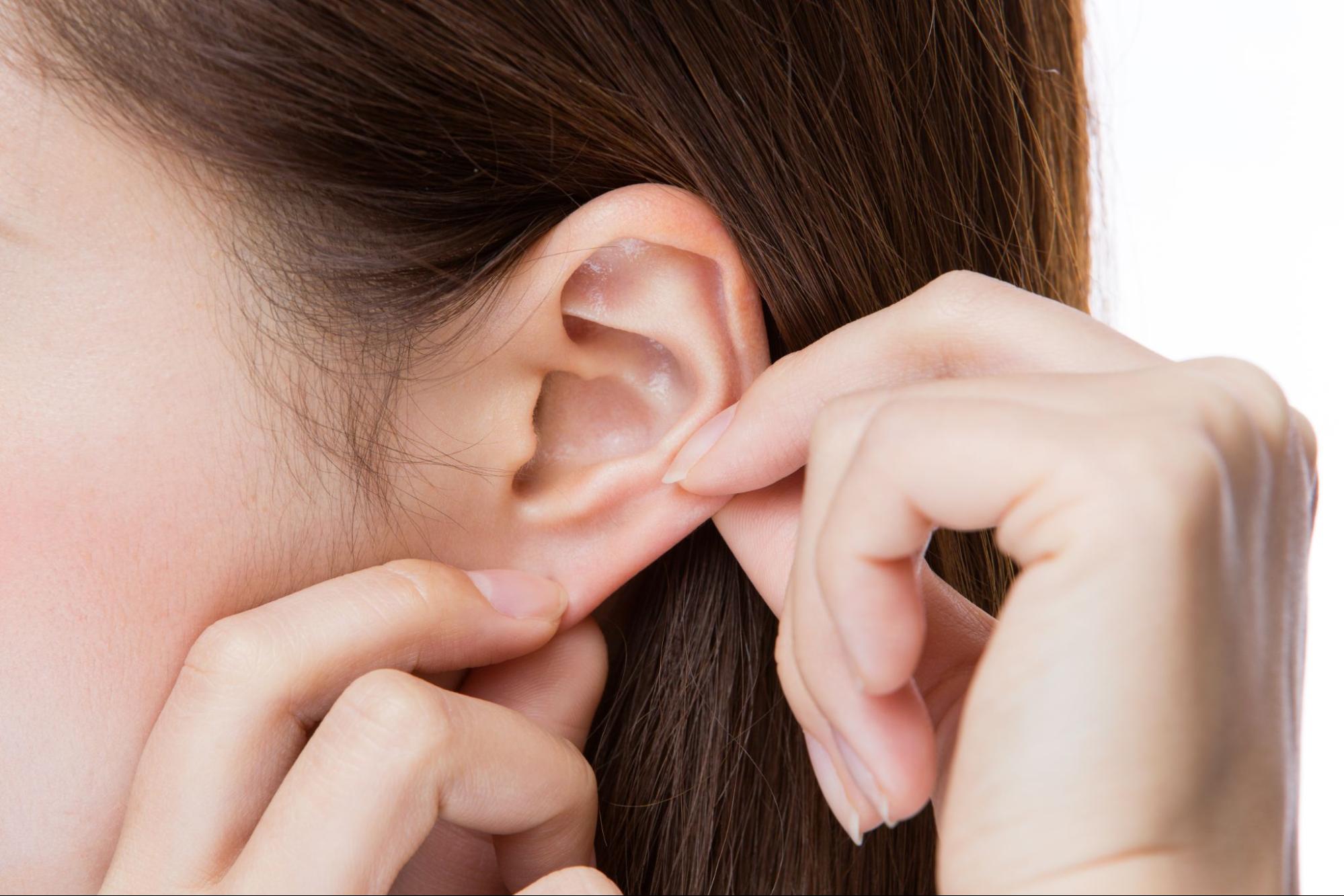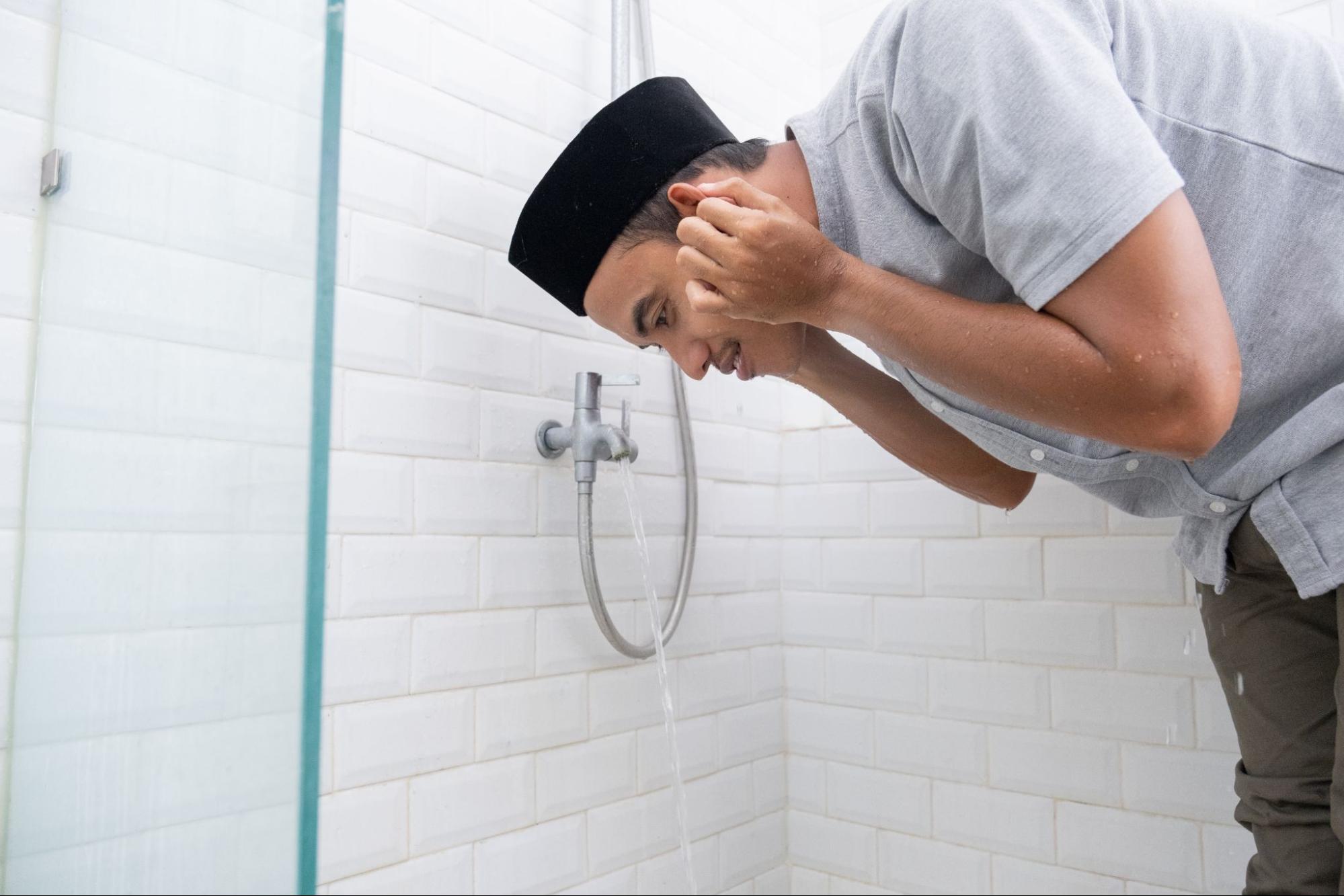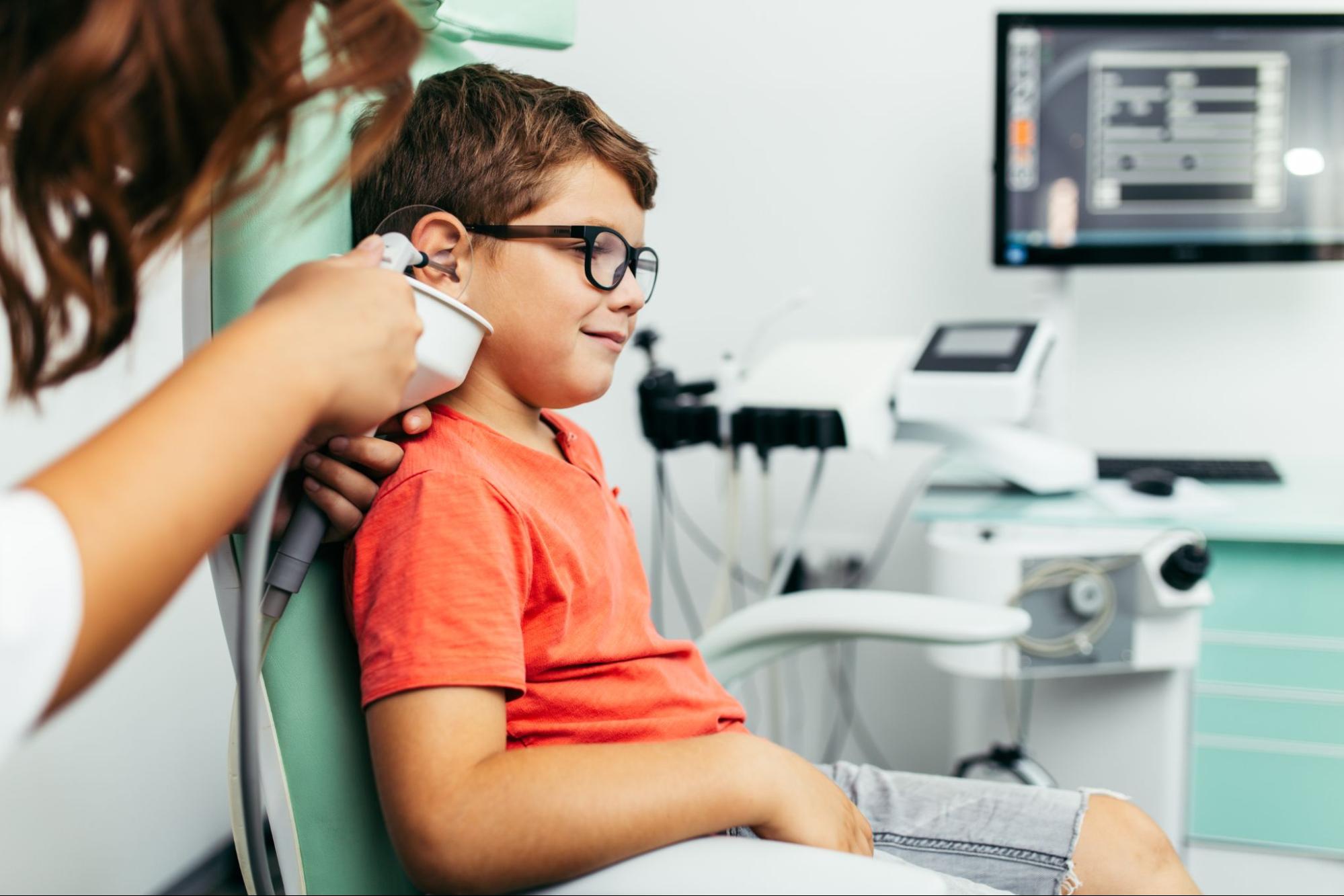There are people who wouldn’t dare put a Q-tip in their ear, while others believe that cleaning your ears using cotton swabs is the best way to do it. Some prefer to pick up their washcloths, while others say that baby oil is the way to go.
No matter your school of thought, cleaning your ears is an important aspect of hearing health care and wellness.
We'll discuss how to clean your ears, how often, and the right tools to use for a safe cleaning experience.
Understanding Earwax Buildup
Your ears clean themselves, especially with the help of earwax. Medically referred to as cerumen, earwax is a sticky substance in the inner ear. It helps in trapping any dirt or foreign matter that may enter the ear.
Once earwax has done its job inside the inner ear, then it ends up in the outer ear where it is ready for cleaning. The presence of earwax is not a sign of poor hygiene. On the contrary, it allows for the proper functioning of the ear.
In addition to the self-cleaning that naturally occurs inside the ear, you will need to manually clean out your ears in cases where there is excessive wax buildup.
If you do not have any problems with your ears, then you most likely produce a normal amount of earwax. As such, gentle cleaning is all you need. Gently wiping your ears using warm water and saline solution should get them clean.
But if you often notice a ringing sound in your ears (commonly referred to as tinnitus) or a lack of proper airflow, then you may have excessive earwax. If you have difficulty hearing, you may think that you are suffering from hearing loss, but it’s possible you may have too much earwax in your ears.
When there is too much earwax buildup in the ears, then you may also suffer from pain or a feeling of fullness or clogging in your ear. In this case, earwax removal should ease the pain and allow your ears to function properly.
However, if you find that you are constantly cleaning excess wax out of your ears but are still facing adverse hearing issues, then you may want to consult a health care professional to ensure good ear health.
A majority of the time, the presence of excess earwax calls for cleaning of the ears. Apart from this, cleaning your inner and outer ear will help to keep water, dirt, and dust at bay.
How Often Should You Clean Your Ears?
The question as to how often to clean your ears is a never-ending debate. There are those who embrace a daily cleaning routine, while others choose to clean their ears every once in a while.
Well, you should clean your ears once or twice a week and no more than this. This is because over-cleaning is detrimental to the ear canal.
But there are exceptions to this rule when you are suffering from earwax blockage. In this case, aim for cleaning only once a day until you get rid of the excess wax.
How to Clean Your Ears at Home
There are a plethora of ear cleaning methods. Unfortunately, not all of them are safe. The common rule of thumb is that you should not insert anything (especially sharp objects) inside your ears.
This means that the use of cotton swabs for the purposes of ear cleaning is ill-advised. Tools like this can not only cause an ear infection but, in extreme cases, may cause permanent damage to your ear.
What to Use to Clean Your Ears
To maintain good ear health, use the following cleaning tools.
Washcloths or Warm Flannels
You can use a washcloth or warm flannel to clean the outside of your ears. This will get rid of any debris or wax, especially if you add baby oil, mineral oil, glycerin, or a dab of hydrogen peroxide to the wash cloth. Because of their antibacterial properties, these solutions will help to clean your ears in the best possible way.
Rubber Syringes
Also called a bulb syringe, a rubber syringe can safely clean the ears. However, you should not use this syringe if you have a damaged eardrum.
To use it, fill it with lukewarm water and tilt your head over the sink. Squeeze the bulb gently, and the water will run out along with the wax deposit in your ear. Finally, dry your ear well using a towel, ensuring that there is no dampness left. Remember, moisture is a breeding ground for ear infection.
Ear Drops
Doctor- or pharmacy-recommended over-the-counter ear drops for excessive earwax removal will dissolve and dry out earwax so it becomes easy to push out.
Remember, never insert objects inside your ears to remove earwax blockage. This will damage your eardrum. By using ear drops, the wax will fall out on its own after a couple of days.
What Not to Use to Clean Your Ears
You should never use the following tools to clean your ears.
Cotton Swabs or Bobby Pins
Unfortunately, many people use these objects to clean their ears. The reality is that they can cause injury or damage to your ear. A cotton swab or bobby pin can easily perforate your eardrum. These objects also have adverse side effects like irritation of the ear canal.
Ear Candles
Ear candling involves the insertion of hollow candles into the ear canal in order to remove earwax or draw water out of your ear.
Apart from the fact that there is no clinical evidence that proves the candles work, they can also burn the ears and cause serious scars. Research by the FDA also found that the candles may pierce the inside of the ear.
When to Consider Professional Ear Cleaning
Professional ear cleaning is a safe, reliable, and effective way of cleaning your ears. It is a welcome solution for those who are suffering from earwax buildup or impaction.
Audiologists conduct professional cleaning for a fee. They start by examining your ears and then determine the best cleaning method for you.
These professionals can remove the earwax manually or can use specialist methods like micro-suction, which uses a vacuum to suck excess earwax out of the ears.
Apart from earwax blockage, you may also require professional cleaning of your ears in the following instances:
- When you feel off-balance: The inner ear helps the body to maintain balance. When lack of balance comes about, it may be a symptom of earwax buildup. Professional ear cleaning can remove the buildup and get you back in balance.
- When you experience ringing in your ears (tinnitus): Although tinnitus tends to go away on its own, if it doesn’t, it may be a sign of excessive wax. Seeing a professional can help determine the cause of the tinnitus and if a professional ear cleaning is the right solution.
Important Things to Remember
Knowing how to clean your ears is the first step to good hearing health. Do not hesitate to do it safely once or twice a week. No matter your cleaning tool of choice, remember to be gentle with your general cleaning practices.
Sharp objects should not go inside your ears as they are harmful. Only settle for a rubber syringe and wash cloth as they are the most reliable cleaning agents. Always have your glycerin or baby oil close by, as these will soften the wax and make cleaning easy.
If you are experiencing hearing problems, you can get tested today for free by taking FreeHearingTest.org’s phone-based hearing screening test. After completing the five-minute test, you will receive your results immediately.
You can also take a free online hearing test from MDHearingAid and receive a free consultation with an audiologist.




